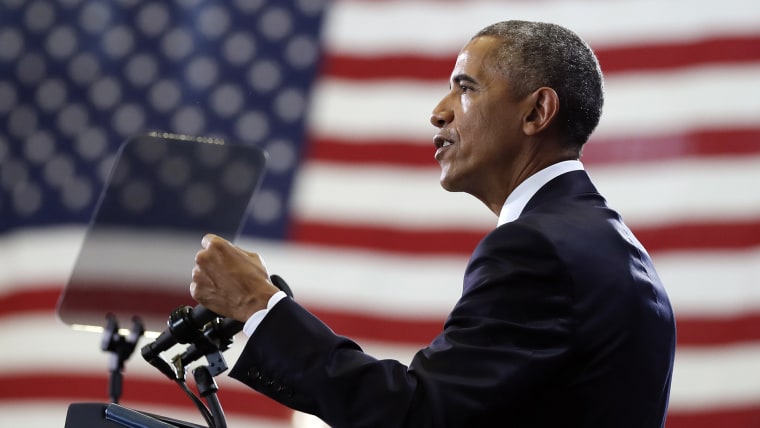About 16 years ago, the political landscape looked similar to the conditions we see now. There was an incumbent Republican president, who'd won three years earlier despite losing the popular vote, and a sizable field of Democratic presidential candidates eager to run against him.
There was also a former two-term Democratic president, who'd left office three years earlier, but who loomed large over the political conversation. When Dems vying for the 2004 nomination gathered for a debate in New York in September 2003, Bill Clinton's name came up constantly -- with each of the candidates claiming his mantle.
John Kerry praised Clinton's fiscal record. Joe Lieberman celebrated Clinton for having "transformed" the party. Carol Mosley Braun touted Clinton's economic record. Dick Gephardt wanted credit for advancing many of Clinton's legislative priorities.
Eventually, Al Sharpton, several years before he became an MSNBC host, joked, "I know that within the next hour we'll say that Bill Clinton walked on water."
Nearly 16 years later, there's another incumbent Republican president, who'd won three years earlier despite losing the popular vote, and a sizable field of Democratic presidential candidates eager to run against him. There's also a former two-term Democratic president, who left office three years ago, but who looms large over the political conversation.
But the number of 2020 contenders prepared to suggest Barack Obama walked on water is quite small. Reuters picked up on something that struck me as important about last night's debate:
Former President Barack Obama was not on the Democratic presidential candidate debate stage on Wednesday night, but he was omnipresent as 2020 hopefuls struggled with attacking the legacy of their party's most popular member.Coming under heavy attack from more liberal, lower-polling candidates, front-runner Joe Biden frequently invoked Obama in his defense, the first black president, for whom he served as No. 2 for eight years.
As a strategic matter, many of the Democratic presidential hopefuls probably feel as if they don't have much of a choice. If they celebrated Obama, his record, and his legacy, it'd likely benefit the former vice president standing alongside them. After all, voters can't re-elect Obama, but they can support his former governing partner.
With this in mind, we saw a variety of candidates take aim at Obama's record on a variety of issues -- health care and immigration, in particular -- not to denigrate the former president but to prevent Biden from capitalizing on the association, which he was eager to emphasize. (This wasn't an issue in 2003, since Al Gore wasn't on the aforementioned debate stage.)
But while this was sensible as a matter of electoral strategy, the tactic is not without risk.
Obama is a uniquely popular figure, both among Democratic partisans and among Americans in general. As recently as June, the Pew Research Center asked Americans to name the best president of their lifetime, and Obama came out on top quite easily.
What's more. since the start of the 20th century, only three presidents have won more than 51% of the popular vote twice: FDR, Eisenhower, and Obama.
It would be an overstatement to say Obama enjoys 100% support among Democratic voters -- he's not without progressive detractors -- but it's also fair to say he's overwhelmingly popular with the party's base.
And this necessarily means that Democratic presidential contenders take a risk when they distance themselves and, at times, disparage Obama's presidency. There's certainly room for debate about the substance behind the criticisms, some of which have merit, but as an electoral matter, candidates have to realize that making unflattering comments about the former president's record runs the risk of alienating the voters whose support they'll need to succeed.
Former Attorney General Eric Holder added on Twitter last night, "To my fellow Democrats: be wary of attacking the Obama record. Build on it. Expand it. But there is little to be gained -- for you or the party -- by attacking a very successful and still popular Democratic president."
